| Tell Me How it Was when you found yourself washed up on that shore, barefoot, in that tattered sweater and those well-worn jeans. Tell me how the tallest of the angels raised you up in both his arms. Tell me how he unfurled his wings so the vast winds of heaven filled you up with an everlasting breath until you knew your spirit would never again falter or fail. Tell me how when they handed you roses for winning the race, you began to twist the thorns into a crown. Tell me how they laughed, and said, "No more. That's over. You can do anything you want with the flowers, but we have another crown waiting for you here." Tell me how instead you planted your roses on the far shore of the Jordan. Tell me how the barefoot Prince of Peace walked up to you as you knelt planting roses and placed a crown of gold olive leaves on your head. Tell me how he drew you up into his arms and called you his friend. Tell me how heaven rang with one long chord, every harmony unwavering, an eternal song. Tell me how he placed his hand over your heart until it began to ring with the same song, set to God's own heartbeat. Tell me how you both climbed the hill together barefoot to cross the bridge spanning the river of light. And how you two looked down from the bridge on the river of your life as it wound round the mountains. And he began to show you your life in the lights glistening in the waters, your gifts and inclinations in the currents, your obstacles in the rocks. And the greatest obstacles were the mountains. And he told you that in your life, you had let the mountains sing. --Pam Richards, Yahrzeit 2014 |
|
1 Comment
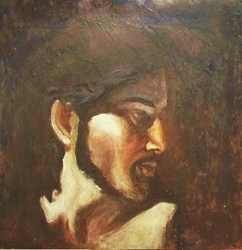 I have started a new series on the Beatitudes and ancient Greek culture here: Jesus Challenges Greek Culture in the Beatitudes Turns out it looks like Jesus spoke more passion and more extremes into the Beatitudes the deeper I study Greek language and culture. I hope you have a chance to read along! 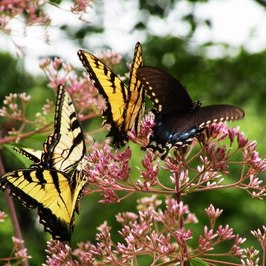 Those who know part of the story know I've recently been in the hospital following what was thought to be a TIA, or mini-stroke. Those who know the rest of the story know that I was re-admitted to the hosiptal the day after I was released. This time the doctors found something rarely discovered on a CT scan or MRI: an acute ischemic stroke, right frontal, thought to be due to a cortical vein thrombosis. Knowing what caused my initial symptoms of slurred speech ansd loss of sensation on the left side led to a completely new treatment plan. In other words, it could have been much, much worse. I can talk, I can walk, I can write--not so much with my left hand, but with good hopes of improvement. Touch typing rate of speed is less than half of what it was, but my acuracy is improving. Today I can log in to my email after only two or three tries as opposed to the five or ten I needed yesterday.. And on top of it all, I'm alive. So much to be grateful for! "Follow my finger. Don't move your head, just your eyes." "How many fingers am I holding up?" "Wiggle your toes for me." "Show me a big smile." "Now stick your tongue out." "Touch your finger to your nose, then to my finger. As fast as you can." "Hold out your hands flat, like you're carring a pizza. Close your eyes and count to ten." Look into the brimming eyes of your adult child and try your best to say something witty, so later she can remember a moment of laughter instead of a moment of terror. " IIIIIII'm sooooooo soooorry I made all you come down here to eat this hospital foooooood," Or bargaining with the doctor who has just scratched the bottom of my foot to make sure I can feel it, and who now informs me I need an MRI: "I'll do the MRI as long As you stand there And scratch my foot, because your'e the one who made it itch!" The prayers I prayed in the CT tube--first, that I would regain the use of my left side. I'm no expert, but I know the Lord's prayer--Jesus insgtructed us to pray that God's will be done, not our own. Then the miracle in this instance must be that God's will and mine were the same, because within minutes I was moving my left hand and pointing to it with my right: "It's a miracle!" I was so thrilled with my newfound ability to movc my left foot that I nearly kicked the doctor in the nose when he instructed me to hold it up. The next time I found myself praying in the IV tube, something had gone wrong. Days of testing had reasulted in a recurrrence of symptoms, so I prayed that this time the problem would show on the CT scan. God was way ahead of me again, but I got bad news before I got the good news. The neurology resident told me they woulxd be sending me home without any more invezgtigaion becuase I'd had such a recent hospital stay, and anothing had turned up the first time. I asked, "Did you look at the recent CT scan yet? He said he hadn't, and went to speak to the attending physician. He came back looking thoughful And puzzled. "They found it," he said. It's a stroke in a very unusual location, a place where we don't usually find them." I had a lot to be grateful for. If the clot had remIned undiscovered, I could easily have died without the correct treatment. I found myself giddy with graitude fo the prayers of friends and family and, so I clowned relentlessly in the ICU. About the frightening electrode-Yoda hairstyle I was awarded for the EEG test for seizure activity. Then the nurse in ICU nearly took me seriously when I joked I was training for a marathon as the three of us--the nurse, my IV pole And I-- strolled down the hall. The tap dance routine I never did complete before I was discharged, "Me And my Shadow," to the tune of my squeaking of IV pole and he rythym of bonging alarms. I still look forward to the ultimate discharge and complete and permanent healing, but for now Still gratefully, Pam 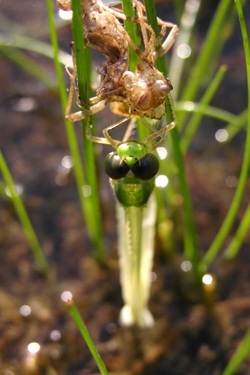 "Blessed are those who know everything they have is a gift; for they are poor in spirit. Blessed are those whose hearts have been broken by their humanity; for they mourn. Blessed are those who yearn for a better world; for they hunger and thirst for righteousness. Blessed are those who know no one can take the love of beauty away; for they are meek. Blessed are those who are blind to anything but the best in others; for they are pure in heart. Blessed are those who wholeheartedly accept a generous, undeserved gift; for they will be merciful. Blessed are those who nurture an atmosphere where all can grow; for they are peacemakers. Blessed are those who tell the truth about their need for grace; for they will be persecuted not for their own righteousness, but for Christ's." --Excerpt from Let the Mountains Sing by Pamela Richards I remember the first time a doctor gave me a bad prognosis. I was forced to make a rapid adjustment to a new address in the valley of the shadow of death. Oddly, it was a move that brought unexpected housewarming gifts.
Poor health gives us the gift of remembering our lifespan. When we face our mortality, it is a good time to discover beauty. It is a good time to trasure not only life, short and sweet as the flowers of grass, but still more to cherish the things that last. A good time for mercy is now. A good time for truth is now. And love. . . is. Look up--look beyond me. You're on the verge of it. No matter what you have to go through to get to it, when you meet that sheer living wall of love that goes on forever, it won't be a minute too soon. Meeting pure love is the most beautiful experience of a lifetime--but it is not as easy as you might imagine. That love is a burning passion, a fire that refines. It burns away everything that is not worthy of it in an instant. It leaves you raw, and weak, and broken. Once you meet it, you know beyond any doubt that you cannot sustain yourself without eternal love. It is a good time to admit that you need it like fire needs oxygen. It is a good time to drop every intention and desire to act against the power of love. It is a good time to be welcomed into a love that cannot die. What is the meaning of the word, "Apocalypse?" Revelation: specifically, the Greek word means unveiling, as in the unveiling of a bride. In the context of the Bible, the Apocalypse refers to the unveiling of the Bride of Christ. Why does she need to be unveiled? Because her identity begins by being hidden to us; hidden to all of us as a group of human beings, and hidden to each of us as an individual. What is the Apocalypse? It is the moment when the veil is lifted and we realize that we, Humanity, each individually and all collectively, are the Lover of Divinity. We, Humanity, are the one he came to redeem, the one he has vowed to marry for eternity at the Wedding Feast of the Lamb. We are the one he has paid the bride price for; the one who cost him his very life. He is our Beloved and we are his. I may point to a month, date, time the veil was lifted for me. Of course, you may point to a different time when the veil was lifted for you; or perhaps your Apocalypse remains in the future. The timing may be relative to your life experience or mine, but nothing changes the eternal truth of the Apocalypse, the significance of the Wedding, or the identity of the Bride. There will be those who prefer to look forward to future "foretold" events. In my life, the "foretold" has already occurred: the veil has been lifted, and the identity of the Bride is clear. As one who is betrothed, my role is to prepare. I may not know the day or the hour of the wedding, but there is no need to wait to accept the invitation to the feast. I gratefully plan to attend. Both the Spirit and the Bride call us to the Wedding Feast of the Lamb. From the end of time as we know it, the Bride invites all of us, each of us. Because time no longer exists where she is, the Bride consists of those dead, living, and not yet born--who in times past understood, or currently understand, or in the future will understand and actively occupy their role as the Spouse of Divinity. I don't know the names of all the individuals who will answer her invitation. I don't think it is for me to know or judge who will accept. The Bride invites all who are thirsty to drink from the living waters and bask in the presence of God. I understand someone up there is keeping track of the details--there's a book of life with names in it, I hear, but no one has put me in charge of it. I can only experience my own moment of revelation: I can't say when you will have yours. Perhaps it's enough for me to pass the invitation along; perhaps I can lend the Bride my assistance as I identify with her by extending the invitation to you. The Spirit and the Bride say, "Come!" See you there. 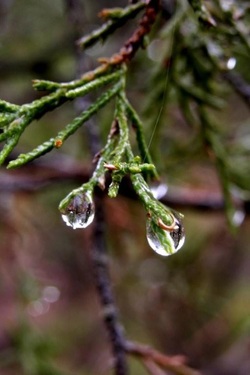 The most highly regarded poet in the English language compared mercy with rain: "The quality of mercy is not strain'd. It droppeth as the gentle rain from heaven Upon the place beneath. It is twice blest - It blesseth him that gives and him that takes." --Shakespeare Mercy is a mystery, perhaps. It's not a word most of us use in everyday conversation, unless we have the habit of saying, "Mercy!" instead of cussing. Instead of trying to define the word, I'd rather point to the way mercy functions. The gift of mercy spreads the kingdom of heaven; it is the rain that waters the seed of the Kingdom of Heaven and, with regular and gentle repetition, eventually leads to a bountiful harvest. Jesus gives a good description of the cause and effect of mercy: Luke 6:37-38 36 "Be merciful, just as your Father is merciful. 37 Do not judge, and you will not be judged. Do not condemn, and you will not be condemned. Forgive, and you will be forgiven. 38 Give, and it will be given to you. A good measure, pressed down, shaken together and running over, will be poured into your lap. For with the measure you use, it will be measured to you.” In the parable of the ungrateful servant, the King--God--does not ask us to pay the unbearable debt we owe him; he excuses it. He acts toward us with mercy. A lot of people would describe this as the gospel: the good news. Yet Jesus stipulates: God shows mercy toward the merciful. The unmerciful, however, will not be excused their debt. If I were a theologian, this sort of parable could drive me nuts. What happened to our good news? Do all who are thirsty get to drink freely from the waters of life, or don't we? Is showing mercy a work of our own, and if it is, will works actually save us? Was Luther barking up the wrong tree entirely? How does God get away with failing to show mercy, yet hold everyone else up to the standard? Does the gospel of grace fall apart on the point of mercy, received and given? When I was young, my father would lecture me for not understanding the value of money. He was brought up in the Depression and I wasn't, so I'm sure I still don't understand money the way he did. What was worse, perhaps, was that I did not understand the value of mercy. When I began to appreciate the value of mercy, I understood the obligation that accepting the free gift of forgiveness placed on my heart. I had no choice but to forgive the injustices others had enacted on me. I learned to step aside and let God act through me and do what he does best: I consciously forgot the obligations of others and I passed the mercy along. Sometimes I still fail, but everytime mercy happens through me, I realize that my bond to the giver of the gift is more powerful than any debt owed to me. When I began to look at God's mercy to us as a free gift, and the mercy we extend to others as an outward sign that we have recieved that gift, it all fell together. Mercy is not a work that saves us, it's sign of a well-watered garden. It shows we've been blessed with showers of grace, we've been immersed in forgiveness, and we are drinking the living water of God's presence in our lives. If I have been shown mercy and my own debt has been forgiven but I demand every last penny from my friend, it's as though I went to the fountain, I talked about the fountain, I had the water in the fountain analyzed, I read the report about the water in the fountain, I rejoiced in existence of the fountain, perhaps I even threw a party to celebrate the fountain and served up Coke and Sprite from a fully stocked open bar, but I never really drank from the fountain. And if I insist on talking about the living water and never drinking it, then I must not be thirsty. Not God nor anybody else can make me drink the living water when I don't choose to. If I do at last drink the living water, everyone will know it. Mercy will begin to flow freely from me out to people around me, and never stop. The kingdom of heaven is not built on lip service, selfishness, and opportunism but on experiencing the presence of God in spirit and in truth. When we embody God's grace with our own actions, we allow others to experience God's presence in their lives and we take part in spreading the Kingdom of heaven. Like God's free gift of rain on the just and the unjust, mercy increases the harvest. Let mercy lead. "And I'm drawing these words from a well that's so nearly dry, A thirsty man would surely die in need of a drink. And where once there was life, there's a graveyard of memories, The immobile energies of paper--paper and ink." --Windows to Wonderland, Rich Mullins 1975 Rich Mullins' second year in Bible College, he was struggling with rationalism--the idea that everything we can learn about God comes through our minds and our direct senses, through analyzing words on a page. But Richard was constantly thirsty for more than words. Eventually, he came to believe that God wants us to worship with our lives, not just our words. This is true worship, the living water he'd thirsted for. "Windows to Wonderland" asks the questions that Richard soon answered in his original version of "If I Stand." Living Waters: When will our thirst be quenched? In Israel, times and places of worship were strictly structured; guidelines of purification also needed to be met before worshippers could experience the presence of God. If the desire for God's presence is a thirst, when will it be quenched? The days of temple worship are over. Do we have to live out our lives dry, thirsty, waiting to meet God in heaven at last? Jesus spread the good news that the drought is over--now. "The day is soon coming, and is now here, that you will worship. . ." The Greek word for worship conveys the idea of "kissing the hand towards," significantly, not an abstract state of mind, but an action. Words may express worship, but verbal worship fails when our words and our actions do not match. "you will worship God in Spirit and in truth." God cannot be confined to words on a page. God is worshipped in Spirit, and in the truth of our lives. In the Hebrew tradition of purification, there were times when living water (running water from a stream, spring or ritual pool) was indispensible. Before entering the temple, before the bride's wedding ceremony, after any ritual uncleanness, upon initiation into their faith, men and women of the nation of Israel used living water for the cleansing mikveh, a total immersion in living water. The Thirst: Based on John 4:1-28 Jesus' disciples had been initiating so many followers that the Pharisees started to hear about it. So Jesus and his disciples left the living waters of Judea and moved on to Galilee. Jesus had to go through Samaria. So he came to a town called Sychar, to Jacob’s well in Samaria. There Jesus sat to rest in the heat of the day. When a Samaritan woman came to draw water, Jesus said to her, “Will you give me a drink?” Not with her ears, but with her heart she heard him say, "You are a human being, just like I am." Because he treated her like an equal, the woman spoke boldly: “You are a Jew and I am a Samaritan woman. How can you ask me for a drink?” Jesus answered her, “If you knew the gift of God and who it is that asks you for a drink, you would have asked him and he would have given you living water.” But she heard him say, "I know you are a woman and must cleanse yourself with living water in order to worship. I know it must be hard to want God so much and to have to work so hard to come near him. I can make it all so much easier." “Sir,” she came back, “you have nothing to draw with and the well is deep. Where can you get this living water?" And in her mind she thought, "Just how exceptional is this this man? He thinks he can bring running water into a dry land!" And out loud she asked, "Are you greater than our father Jacob, who gave us the well and drank from it himself, as did also his sons and his livestock?” Jesus answered, “Everyone who drinks this water will be thirsty again, but whoever drinks the water I give them will never thirst. Indeed, the water I give them will become in them a spring of water welling up to eternal life.” Her heart began to awaken. She remembered the psalm, "Like a parched land, my soul thirsts for you. . ." She said to him, “Sir, give me this water so that I won’t get thirsty and have to keep coming here to draw water.” He told her, “Go, call your husband and come back.” “I have no husband,” she replied. Jesus said to her, “You are right when you say you have no husband. The fact is, you have had five husbands, and the man you now have is not your husband. What you have just said is quite true.” Her heart and her life matched her thoughts, and instantly truth fell from her lips. “Sir,” the woman said, “I can see that you are a prophet." Her heart pounded as she asked herself, "This man knows the truth. But what about me? What if I have been wrong all my life? And now that I meet him, will the one who has the right answers tell me that my worship has been for nothing?" Out loud she said, "Our ancestors worshipped on this mountain, but you Jews claim that the place where we must worship is in Jerusalem.” “Woman,” Jesus replied, “believe me, a time is coming and has now come when you will worship the Father neither on this mountain nor in Jerusalem, but in Spirit and in truth. These are the kind of worshipers the Father seeks. God is spirit: he is to be worshipped in Spirit and in truth.” The woman said, “I know that Messiah is coming. When he comes, he will explain everything to us.” In her heart she whispered, "Are you . . . you the one?" The man was wise, kind, fair, and a prophet. She knew she could trust his word. Her throat went dry while she waited for his answer. Then Jesus declared, “I, the one speaking to you—I am he.” |
Pam RichardsSome thoughts Archives
September 2014
Categories
All
Photography @ Larry Henry used by permission. See more of Larry's nature photography at: http://www.reconnectingthebirdtribes.com
|
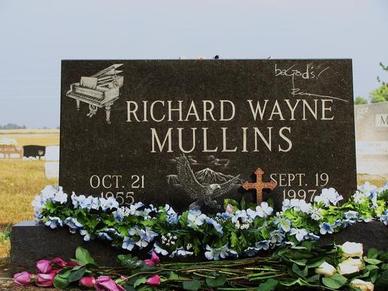
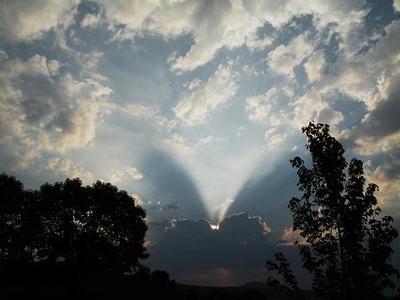

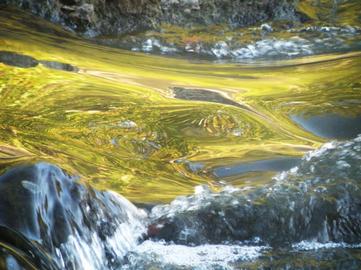
 RSS Feed
RSS Feed